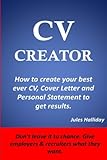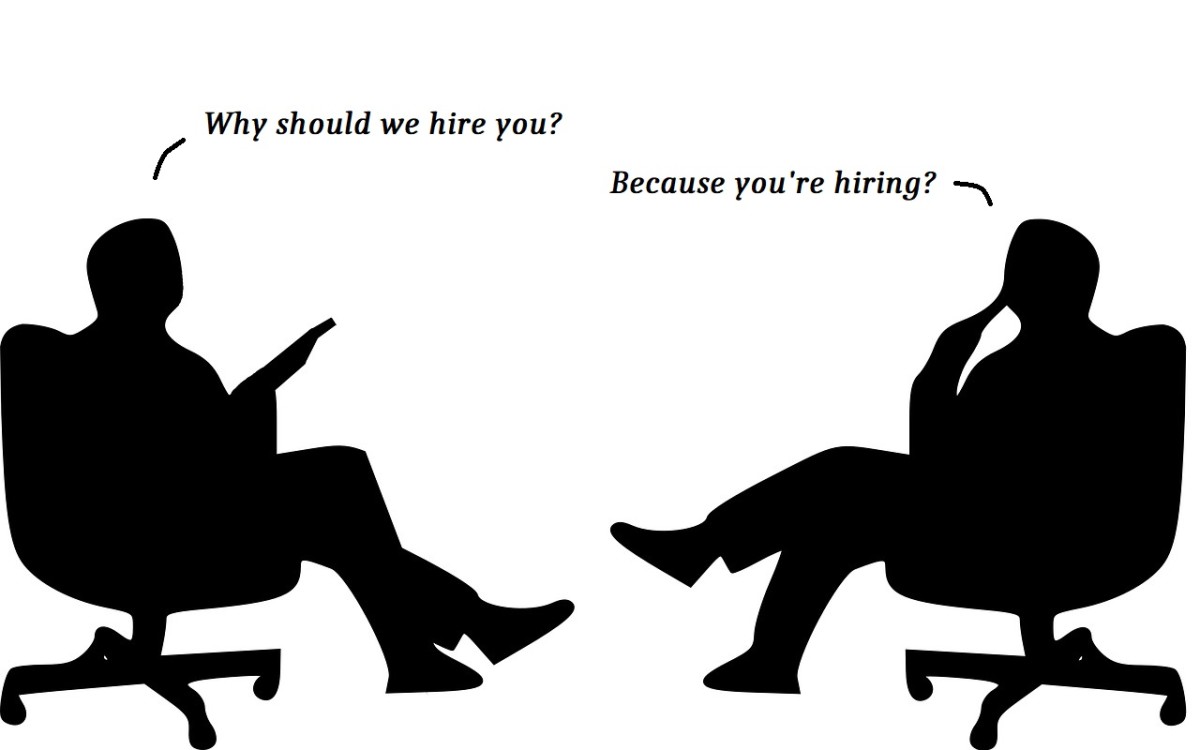- HubPages»
- Business and Employment»
- Employment & Jobs»
- Interviewing for a Job
Questions an Interviewer Should Not Ask


What is an interviewer not allowed to ask?
Interviewers should abide by the country's discrimination laws and avoid any questions which may put them in breach of this yet you may be sitting in front of an inexperienced interviewer who unwittingly asks banned questions as they think they are either being friendly or attempting to break the ice.
As a potential employee, you are protected by other legislation. For example, in the UK, this includes the Sex Discrimination Act, the Race Relations Act, the Employment Equality Regulations and the Disability Discrimination Act.
Let’s take a look at what an interviewer should not ask and later solutions on how to deal with them.
Questions About Place of Birth, Ethnicity and Religion
Acceptable questions are any surrounding your ability to provide original documents proving your right to work in the UK, any visas, your passport and birth certificate for example. It could be deemed discriminatory if you are asked where you were born or if you have an unusual surname; it’s origin.
You may have been asked to fill out a form during the application process on your ethnic background. This is fine as this information is used for monitoring purposes and the data capture is usually anonymous and should not be brought up in the interview. You should have had the option to choose this or decline to answer.
If the position requires someone who is multi-lingual, the interviewer should ask which languages you speak as opposed to what is your mother tongue.
An interviewer should not ask any questions regarding your religion. They may however ask if you are able to work on particular days (which may or may not be a religious festival) if this is directly related to you performing the role.
Questions About Your Age or Gender
Since October 2006 it has been illegal to discriminate against workers under the age of 65 on the grounds of age however there are some instances where you may be asked to provide your age if it is what is called a “genuine occupational qualification.”
Minimum age restrictions apply to those working in licensed premises such as serving alcohol or working in a betting shop, the armed forces and police; young workers are not permitted to come into contact with chemical agents, toxic material or radiation.
In these circumstances, the interviewer should not ask your age outright and instead ask questions such as “Are you over 18″ or are you above the minimum age required for this role?”
Similarly, you should not be expected to answer questions relating to your retirement.
Regarding your gender; you should be considered for the role based on your ability to perform and prior experience. You may be the only female in what is a male dominated company but being asked “How do you feel about managing men?” or “Could cope being the only female in the office?” is unacceptable.
Questions About Marital Status, Children and Sexual Preference
This seems to be the area in which interviewers do ask questions to make polite conversation however they are not permitted to do so. By all means volunteer the information yourself as part of your conversation if you really must but do any of the above make you a better candidate for the job? Probably not.
You may be asked if you have had any former names as part of background checks or referencing but asking outright if you are married and/ or have children is irrelevant.
According to Which?, the most commonly asked banned question is about whether someone is thinking about starting a family. It says this kind of enquiry is simply unacceptable. The consumer group argues firms should be focusing on a person’s knowledge and skills and not making pre-conceived judgments about their age or other personal circumstances.
As for sexual preference. No! It’s completely unrelated to your performance in the role.
Questions About Disability and Illness
It’s perfectly acceptable for an interviewer to ask for an explanation on number of sick days you took at your previous work place for example and don’t panic if you are asked “How are you?”!!!
Questions that are off limits are whether you are currently taking medication, if you have had any past illnesses or operations or if you have taken time off work due to stress. Any questions posed to you should be framed as “Are you able to perform the specific duties for this position?”
Rethink.org advises “The Equality Act 2010 has restricted the questions that a prospective employer can ask about health or disability in an application form therefore you do not normally have to provide information about your health on your initial application. An employer may still ask these questions but they should only be asked for specific reasons eg. to enable the employer to make reasonable adjustments in the interview or to establish that an applicant can carry out tasks necessary for the job.”
If you disclose that you have a disability, health condition or mental illness as you know it will interfere with the job you are applying for then you will be protected by the Equality Act 2012 (EqA) which means that it will be illegal for the prospective company to discriminate against you. Ensure that during the interview you are able to discuss your skills, experience and qualifications that make you a strong candidate.
If you do have a condition or illness you feel you should disclose, you can do this at any time either before the interview, during the interview, after the interview but before a job offer, after a job offer but before starting a job or anytime after starting a job. Only you know whether or not it will affect your day to day duties.
Questions About Your Lifestyle Choices
You may have your hobbies and interests listed on your CV and an interviewer may ask you more on this which is fine however lifestyle choices such as alcohol consumption, smoking and drugs are not allowed.
Asking if you are a member of any professional organisations or bodies that are related to the position is acceptable. Requiring an answer to if you are a member of any clubs or societies is not.
You may be required to take a CRB check (Criminal Records Bureau) for the role which could be completed before the interview however no questions surrounding the results and detail may be asked and regardless of any checks no questions relating to arrests or convictions.
Your height and weight are other areas in which you should not be asked although if the role requires you to lift items to a high level or heavy weights then you may be asked if you are capable of doing so.
FREE Apps to Help With Job Interviews

How to answer inappropriate interview questions
Interviewers cannot ascertain your ability to do the job based on your age, sex, religion, gender, marital status and so forth so you are not compelled to answer.
If a question makes you feel uncomfortable then you can choose either to briefly answer and change the subject quickly (a good way to do this is to ask the interviewer a question that is directly related to the role or the company), ignore the question altogether and move on or politely decline to answer. If you move on quickly to another subject area the interviewer may realise their mistake and appreciate your deflection and skill to let it go and move forwards.
If however the question is clearly discriminatory or offensive then you have every right to end the interview and leave. Ok, so you may not get the job but would you really want to work there anyway?
Remember though that the interviewer may ask questions innocently due to lack of experience or indeed their own nerves (yes, interviewers do feel nervous too) so assess the situation before you hot foot it to a legal representative!
Exceptions
Of course as with most things, there are exceptions to the rule.
Theatrical professions are just one example of the employer permitted to move the goal posts. If an acting role commands a particular ethnicity, gender or age then they can choose to only audition those who fulfill the criterion.
Slimming and wellness organisations may weigh you or ask questions surrounding your health and wellbeing.
So the general rule of thumb is that if it the question is not directly related to the job then an interviewer should not ask you to answer it.
Questions About Place of Birth, Ethnicity and Religion
Acceptable questions are any surrounding your ability to provide original documents proving your right to work in the UK, any visas, your passport and birth certificate for example. It could be deemed discriminatory if you are asked where you were born or if you have an unusual surname; it’s origin.
You may have been asked to fill out a form during the application process on your ethnic background. This is fine as this information is used for monitoring purposes and the data capture is usually anonymous and should not be brought up in the interview. You should have had the option to choose this or decline to answer.
If the position requires someone who is multi-lingual, the interviewer should ask which languages you speak as opposed to what is your mother tongue.
An interviewer should not ask any questions regarding your religion. They may however ask if you are able to work on particular days (which may or may not be a religious festival) if this is directly related to you performing the role.
Questions About Your Age or Gender
Since October 2006 it has been illegal to discriminate against workers under the age of 65 on the grounds of age however there are some instances where you may be asked to provide your age if it is what is called a “genuine occupational qualification.”
Minimum age restrictions apply to those working in licensed premises such as serving alcohol or working in a betting shop, the armed forces and police; young workers are not permitted to come into contact with chemical agents, toxic material or radiation.
In these circumstances, the interviewer should not ask your age outright and instead ask questions such as “Are you over 18″ or are you above the minimum age required for this role?”
Similarly, you should not be expected to answer questions relating to your retirement.
Regarding your gender; you should be considered for the role based on your ability to perform and prior experience. You may be the only female in what is a male dominated company but being asked “How do you feel about managing men?” or “Could cope being the only female in the office?” is unacceptable.
Questions About Marital Status, Children and Sexual Preference
This seems to be the area in which interviewers do ask questions to make polite conversation however they are not permitted to do so. By all means volunteer the information yourself as part of your conversation if you really must but do any of the above make you a better candidate for the job? Probably not.
You may be asked if you have had any former names as part of background checks or referencing but asking outright if you are married and/ or have children is irrelevant.
According to Which?, the most commonly asked banned question is about whether someone is thinking about starting a family. It says this kind of enquiry is simply unacceptable. The consumer group argues firms should be focusing on a person’s knowledge and skills and not making pre-conceived judgments about their age or other personal circumstances.
As for sexual preference. No! It’s completely unrelated to your performance in the role.
Questions About Disability and Illness
It’s perfectly acceptable for an interviewer to ask for an explanation on number of sick days you took at your previous work place for example and don’t panic if you are asked “How are you”!!!
Questions that are off limits are whether you are currently taking medication, if you have had any past illnesses or operations or if you have taken time off work due to stress. Any questions posed to you should be framed as “Are you able to perform the specific duties for this position?”
Rethink.org advises “The Equality Act 2010 has restricted the questions that a prospective employer can ask about health or disability in an application form therefore you do not normally have to provide information about your health on your initial application. An employer may still ask these questions but they should only be asked for specific reasons eg. to enable the employer to make reasonable adjustments in the interview or to establish that an applicant can carry out tasks necessary for the job.”
If you disclose that you have a disability, health condition or mental illness as you know it will interfere with the job you are applying for then you will be protected by the Equality Act 2012 (EqA) which means that it will be illegal for the prospective company to discriminate against you. Ensure that during the interview you are able to discuss your skills, experience and qualifications that make you a strong candidate.
If you do have a condition or illness you feel you should disclose, you can do this at any time either before the interview, during the interview, after the interview but before a job offer, after a job offer but before starting a job or anytime after starting a job. Only you know whether or not it will affect your day to day duties.
CV Writing
- CV Writing Services
A brand new CV written by the experts.
Questions About Your Lifestyle Choices
You may have your hobbies and interests listed on your CV and an interviewer may ask you more on this which is fine however lifestyle choices such as alcohol consumption, smoking and drugs are not allowed.
Asking if you are a member of any professional organisations or bodies that are related to the position is acceptable. Requiring an answer to if you are a member of any clubs or societies is not.
You may be required to take a CRB check (Criminal Records Bureau) for the role which could be completed before the interview however no questions surrounding the results and detail may be asked and regardless of any checks no questions relating to arrests or convictions.
Your height and weight are other areas in which you should not be asked although if the role requires you to lift items to a high level or heavy weights then you may be asked if you are capable of doing so.

How to answer inappropriate interview questions
Interviewers cannot ascertain your ability to do the job based on your age, sex, religion, gender, marital status and so forth so you are not compelled to answer.
If a question makes you feel uncomfortable then you can choose either to briefly answer and change the subject quickly (a good way to do this is to ask the interviewer a question that is directly related to the role or the company), ignore the question altogether and move on or politely decline to answer. If you move on quickly to another subject area the interviewer may realise their mistake and appreciate your deflection and skill to let it go and move forwards.
If however the question is clearly discriminatory or offensive then you have every right to end the interview and leave. Ok, so you may not get the job but would you really want to work there anyway?
Remember though that the interviewer may ask questions innocently due to lack of experience or indeed their own nerves (yes, interviewers do feel nervous too) so assess the situation before you hot foot it to a legal representative!
Exceptions
Of course as with most things, there are exceptions to the rule.
Theatrical professions are just one example of the employer permitted to move the goal posts. If an acting role commands a particular ethnicity, gender or age then they can choose to only audition those who fulfill the criterion.
Slimming and wellness organisations may weigh you or ask questions surrounding your health and wellbeing.
So the general rule of thumb is that if it the question is not directly related to the job then an interviewer should not ask you to answer it.










